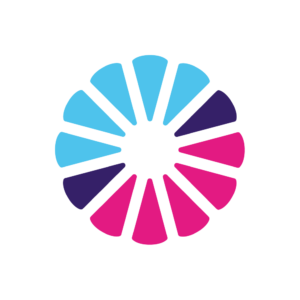How many times have you tried to create a budget and stick to it? It’s something that’s so difficult for so many people, so it can be tempting to stop even trying. But before you give up… know that budgeting can be critically important to ensure your financial health and stability. There are concrete ways to make a difficult thing more manageable (and maybe even fun)!
Why is budgeting so important?
- Tracking your expenses helps you control your spending, and save more money. When you manage your finances without a budget, there really isn’t anything preventing you from spending beyond your means. You may have a general idea about how much money you spend on certain things, but without actual (accurate) numbers, it’s easy to let your spending habits get out of control. When you live on a budget, it’s much easier to see where you may be frivolously overspending, and when you can see waste that can be eliminated, you now have an ability to put that “extra” money into savings that you didn’t think you had before. Who doesn’t love saving money?
- It helps you make wiser financial decisions and be better prepared for emergencies. As I’m sure you already know, life comes with all kinds of emergency situations that can many times be very expensive. If you plan for (and stick to) saving for these potential emergency expenses, you can avoid financial difficulties in the future. From emergency room bills to unexpected home expenses, without mindful and intentional planning, you put yourself at risk of going into (sometimes significant) debt… that you may not even have the means to pay. It’s recommended that you have approximately 3-6 months of living expenses in emergency savings. That may sound overwhelming to many of you, but the good news is you can start small! $100 is better than $0. $1 is better than $0. Focus on what you CAN do, and not what you think you SHOULD be able to do.
- It can improve your mental health. Finances are incredibly overwhelming and stressful for many of us. How many nights have you tossed and turned worrying about how you were going to pay your bills? With a concrete plan in place, it takes away some of the headache that comes from wondering if you’ll be able to make it to your next paycheck. Budgeting may be the unexpected self-care that you didn’t even know you needed.
How can you make budgeting work for you?
- Keep it simple! Track all fixed and variable expenses, but don’t overwhelm yourself with 200 detailed categories. Know how much you spend on “needs” vs. “wants,” and use it as a guide for where to dedicate your money in a way that helps you work toward your personal financial goals.
- Reward yourself! Sticking to a budget requires consistency and discipline. It’s an achievement in itself if you manage to do it! Keep in mind if you DON’T stick to it, there is no need to punish yourself. Use any setbacks as an opportunity to realize what went wrong, and how to fix it.
- Find a system that works for you! Budgeting is NOT one size fits all! Start easy. The NFCC (National Foundation for Credit Counseling) has a simple expense tracker that can be a good place to start – https://www.nfcc.org/resources/planning-tools-and-calculators/monthly-budget-planner/. There are many budget templates on the internet. Do some research and find one that you like!
Need some further help with budgeting? CCCS of Buffalo offers Financial Coaching Sessions, where you would meet one on one with one of our Certified Financial Counselors. From budgeting advice to suggestions for more positive spending habits, you and your counselor would work as a team to create an individualized budget and determine the best plan of action to achieve your financial goals. Your counselor would go over your income, expenses, and Experian credit report with you, and even review ways to build on and improve your credit.
Call us today at (716) 712-2060 to schedule an in person or telephone appointment!

